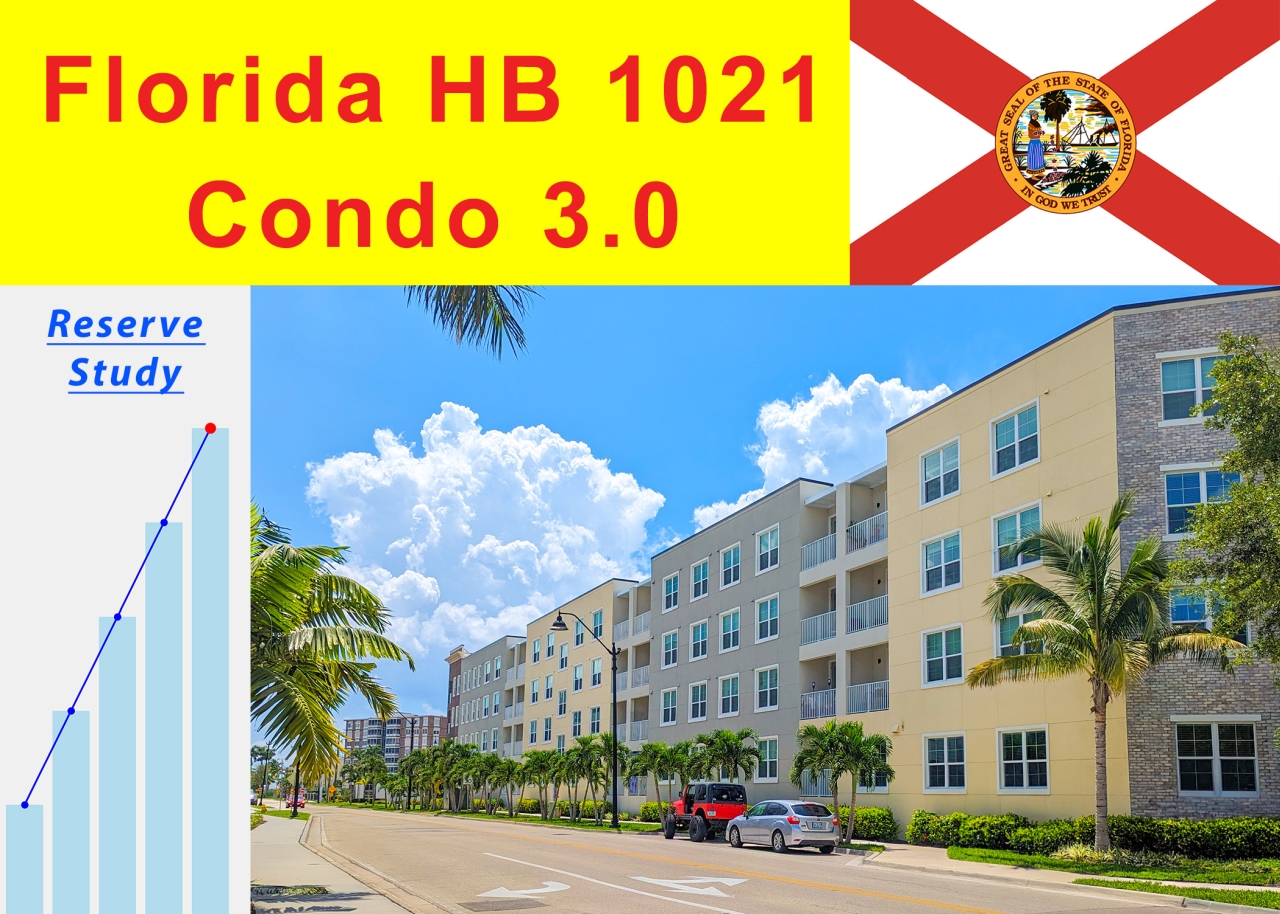
In Florida’s dynamic real estate market, staying informed about legislative changes is crucial. One such significant update is Florida HB 1021, often referred to as Condo 3.0. This bill introduces pivotal changes that affect condominium governance and ownership, making it essential for condo owners, potential buyers, and real estate professionals to understand its implications.
The need for this legislation was underscored by the tragic collapse of the Champlain Towers in Surfside, which highlighted the dire consequences of structural neglect and insufficient reserves. Excessive litigation and financial mismanagement have plagued many associations, leading to a lack of accountability and transparency. Additionally, numerous associations have been found without adequate reserves, leaving them unprepared for necessary repairs and replacements.
Understanding the Key Provisions of Condo 3.0
Structural Integrity and Safety Inspections
Condo 3.0 mandates regular structural integrity inspections for older buildings, specifically targeting those that are 30 years or older. This measure is designed to ensure that buildings in Florida remain safe for occupants, by addressing potential risks before they escalate.
Enhanced Reserve Funds Requirements
The bill strengthens requirements for reserve funds, ensuring that associations allocate sufficient resources for major repairs and replacements. This provision aims to mitigate financial risks and reduce the likelihood of unexpected large assessments for owners.
Improved Transparency and Disclosure Practices
Enhanced transparency is a cornerstone of Condo 3.0. The bill requires detailed disclosure of financial documents, inspection reports, and maintenance plans to unit owners. This initiative fosters an environment of trust and informed decision-making within associations.
Website Requirements for Condominium Associations
One of the notable provisions of Florida HB 1021, or Condo 3.0, is the requirement for condominium associations with 150 or more units to establish and maintain a website. This mandate aims to enhance accessibility of essential documents and information for unit owners.
Efficient Dispute Resolution Mechanisms
HB 1021 introduces improved mechanisms for addressing disputes between unit owners and associations, with the aim to reduce litigation and foster amicable resolutions. The bill emphasizes the use of mediation and arbitration as primary methods for resolving conflicts, encouraging parties to reach agreements without resorting to costly and time-consuming court cases.
Board Member Accountability and Ethical Governance
To promote ethical governance, Condo 3.0 imposes stricter qualifications and accountability measures for board members. This includes mandatory training on fiduciary duties and conflict-of-interest policies, ensuring that board members act in the best interest of the community. Here are the detailed requirements:
Certification of Governing Documents
Newly elected or appointed directors must submit a written certification that they have read the association’s governing documents, including the declaration of condominium, articles of incorporation, bylaws, and current written policies. They must pledge to uphold these documents to the best of their ability and faithfully discharge their duties.
Mandatory Training Course
Directors are required to complete a state-approved educational course within 1 year before or 90 days after their election or appointment. This training, which is at least 4 hours long, covers essential topics such as:
- Milestone inspections
- Structural Integrity Reserve Studies (SIRS)
- Elections
- Recordkeeping
- Financial literacy and transparency
- Levying of fines
- Meeting requirements
Annual Continuing Education
Directors must also complete at least one hour of continuing education annually on recent changes to condominium laws and rules. This ongoing education ensures that board members stay updated on new regulations and best practices.
Impact of Condo 3.0 on Condominium Owners and Associations
For current condominium owners, Condo 3.0 brings both challenges and opportunities. The increased focus on structural inspections and reserve funds means enhanced safety and long-term financial planning. However, these measures may also result in higher maintenance fees and assessments.
Prospective buyers will benefit from the bill’s emphasis on transparency, gaining access to comprehensive information about a building’s condition and the financial health of the association before making a purchase decision. Real estate professionals, too, must stay abreast of these changes to effectively guide their clients through the evolving landscape.
Conclusion: Navigating the Future of Condominium Ownership in Florida
Florida HB 1021, or Condo 3.0, represents a significant step forward in condominium governance. By prioritizing safety, financial stability, and transparency, the bill seeks to create a more secure and equitable environment for all stakeholders in the condominium community. As the real estate market continues to evolve, understanding and adapting to these legislative changes will be key to navigating the future of condominium ownership in Florida.
